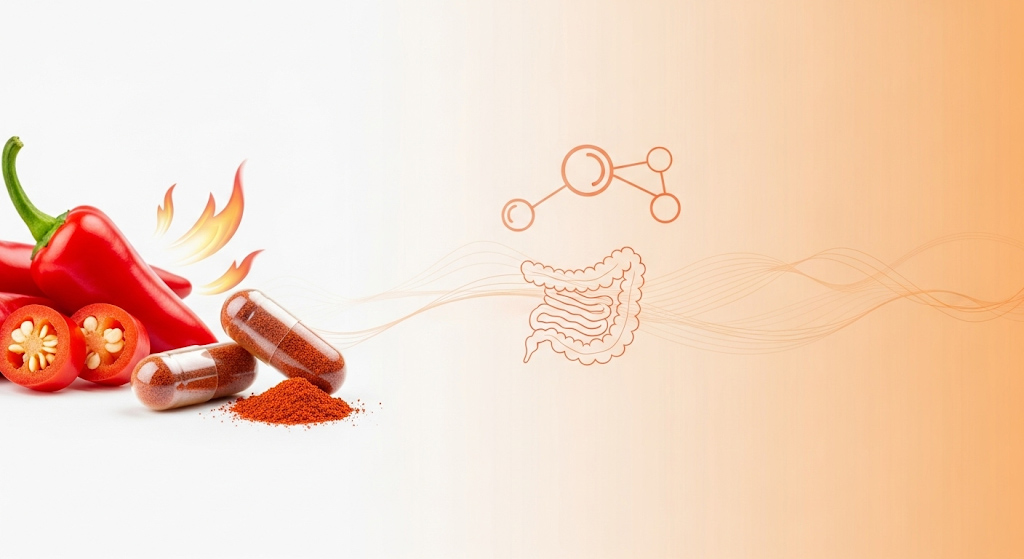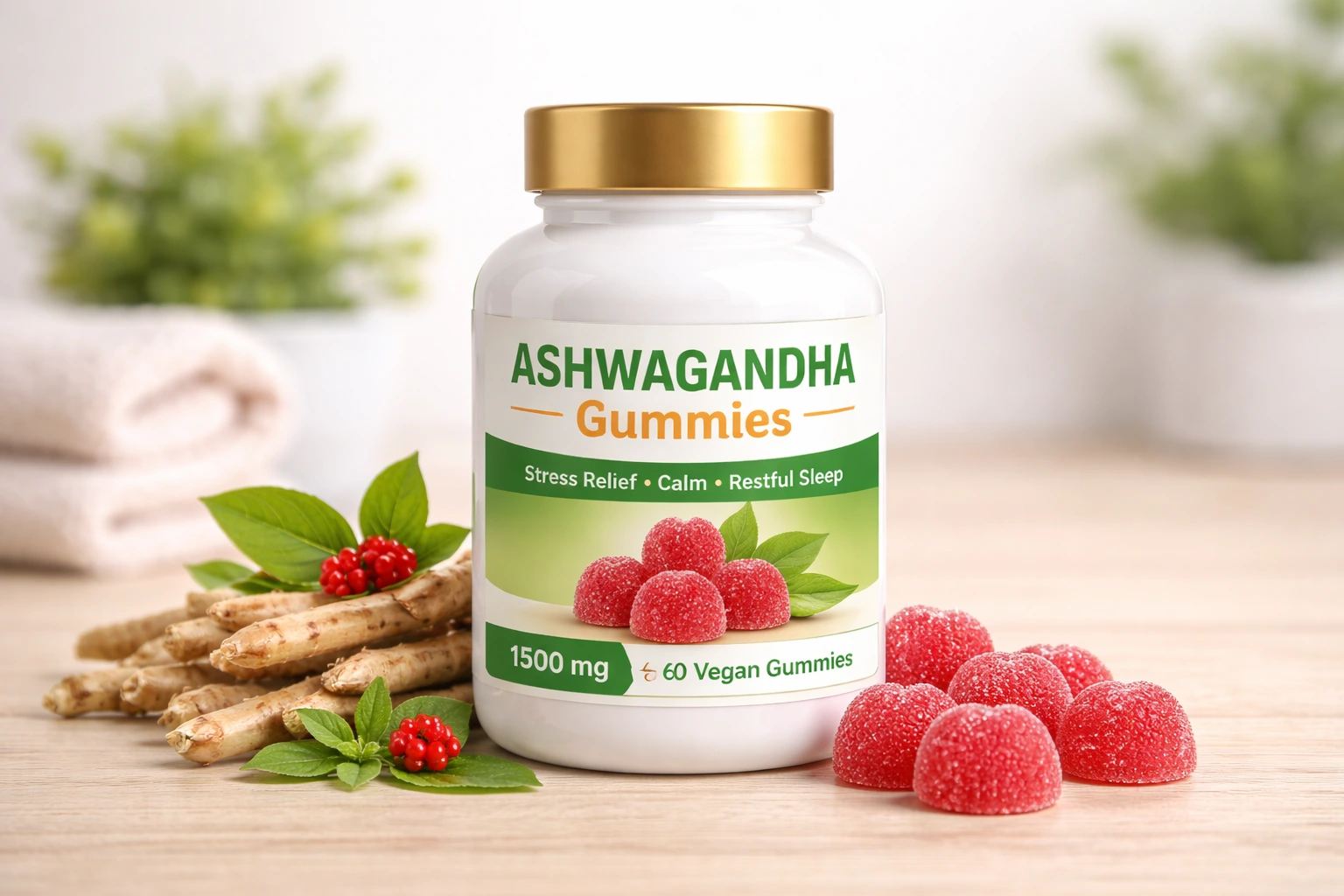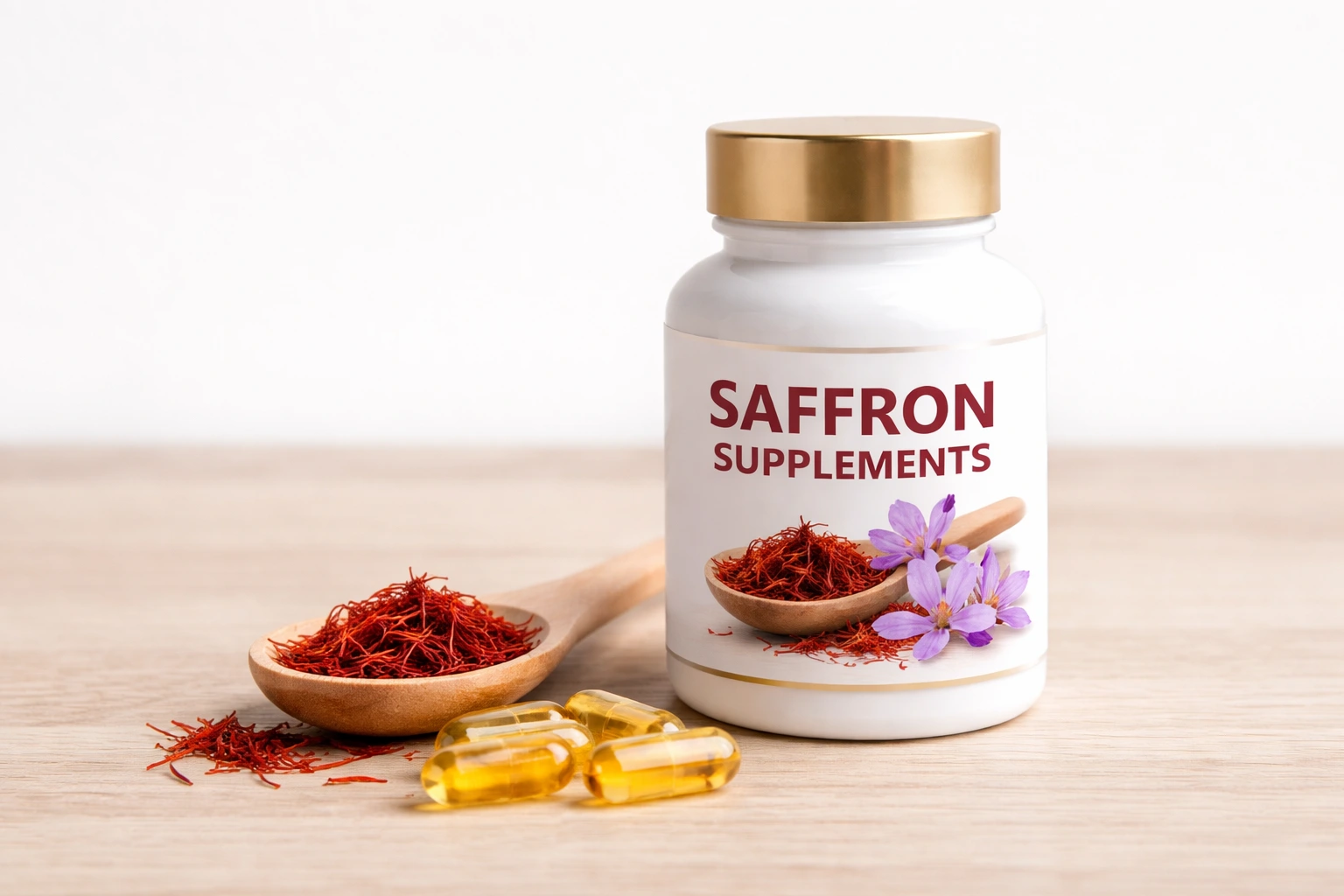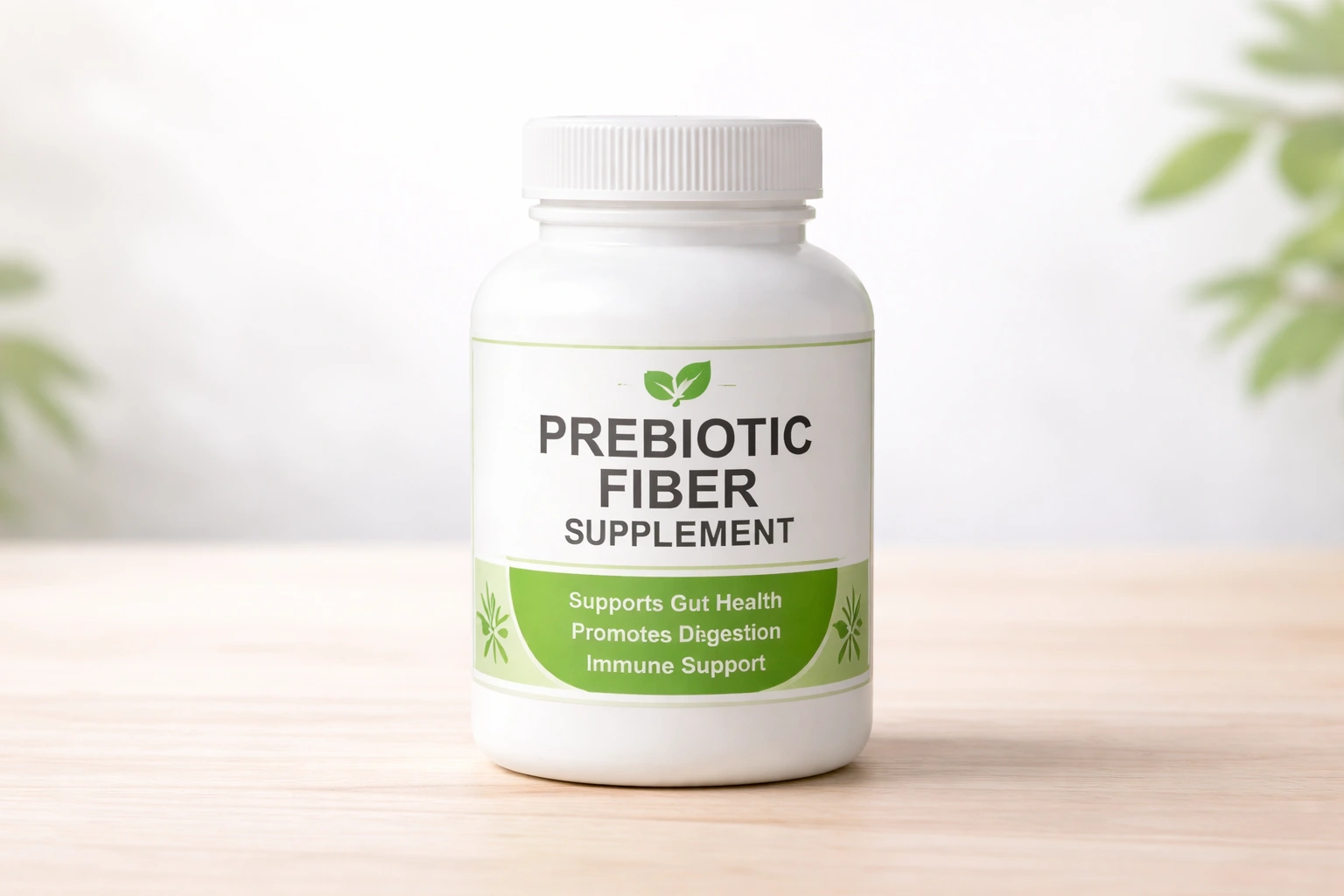Cayenne pepper, a vibrant and pungent spice, is far more than just a culinary delight that ignites your taste buds. This potent red pepper has captivated the health and wellness community for centuries, finding its place not only in kitchens worldwide but also as a popular dietary supplement. At the heart of cayenne's power lies capsaicin, the active compound responsible for its characteristic heat and an impressive array of purported therapeutic properties. People often turn to cayenne pepper supplements with the aim of invigorating their metabolism, supporting digestive health, alleviating certain types of pain, and much more.

This in-depth article will meticulously explore the multifaceted world of cayenne pepper dietary supplements. We'll delve into its botanical origins, dissect the mechanisms behind its diverse health benefits, outline its common uses, discuss crucial considerations and potential side effects, and provide essential guidance on how to select a high-quality supplement to safely harness its fiery potential for your well-being.
Understanding Cayenne Pepper: Beyond the Spice Rack
Cayenne pepper (Capsicum annuum) is a specific variety within the Capsicum genus, which encompasses all chili peppers. Native to Central and South America, it has been used in traditional medicine systems for thousands of years, revered for its warming properties and medicinal applications.
The key to cayenne pepper's therapeutic effects is capsaicin (8-methyl-N-vanillyl-6-nonenamide), the most prominent of a group of compounds called capsaicinoids. Capsaicinoids are unique in their ability to selectively bind to and activate transient receptor potential vanilloid 1 (TRPV1) receptors. These receptors are primarily located on sensory nerve fibers throughout the body, including the mouth, skin, and digestive tract. When capsaicin activates TRPV1, it triggers a sensation of heat or pain. This seemingly simple interaction initiates a cascade of physiological responses that underpin many of cayenne's health benefits.
Beyond capsaicin, cayenne pepper also contains a rich profile of other beneficial compounds, including various carotenoids (like beta-carotene, zeaxanthin, lutein, and cryptoxanthin), flavonoids, and vitamins (such as Vitamin C and Vitamin A precursors), all contributing to its antioxidant and anti-inflammatory capacities.
Unveiling the Diverse Benefits and Applications of Cayenne Pepper Supplements
The potential health benefits attributed to cayenne pepper supplements are extensive and continue to be a subject of ongoing scientific research. These benefits are largely driven by capsaicin's interaction with TRPV1 receptors, its influence on cellular pathways, and the pepper's rich antioxidant content.
-
Metabolic Enhancement and Support for Weight Management:
-
Thermogenesis: Capsaicin is a well-documented thermogenic agent. When ingested, it stimulates the sympathetic nervous system, leading to an increase in internal body temperature and, consequently, a rise in the body's energy expenditure. This means your body burns more calories, even at rest, contributing to a slight but measurable boost in metabolism. This effect is often referred to as "diet-induced thermogenesis."
-
Appetite Modulation: Several studies suggest that capsaicin may play a role in appetite regulation. It has been observed to reduce overall caloric intake, decrease cravings for fatty foods, and promote feelings of satiety or fullness, particularly when consumed before or with meals. This can be a valuable aid for individuals striving to manage their weight.
-
Fat Oxidation: Capsaicin may also shift the body's energy metabolism towards increased fat oxidation. This means it encourages the body to utilize fat stores for energy rather than relying solely on carbohydrate reserves, potentially supporting fat loss.
-
Common Use: Cayenne pepper supplements are frequently incorporated by those seeking to complement their diet and exercise regimens for weight management and metabolic support.
-
-
Promotion of Digestive Health:
-
Stimulation of Digestive Secretions: Contrary to the popular misconception that spicy foods harm the stomach, capsaicin can actually stimulate the healthy production of various digestive enzymes and gastric juices, including stomach acid and saliva. This enhanced enzymatic activity is crucial for the efficient breakdown of food into absorbable nutrients, potentially easing digestion and reducing post-meal discomfort.
-
Gastric Mucosal Protection: Research indicates that capsaicin may exert protective effects on the stomach lining. It achieves this by increasing mucosal blood flow and stimulating the production of protective mucus, which acts as a barrier against stomach acid. This can help maintain the integrity of the gastric mucosa, potentially offering a degree of protection against damage.
-
Gut Motility and Regularity: While more research is needed, some anecdotal evidence and preliminary studies suggest that cayenne pepper may positively influence gut motility, potentially aiding in regular bowel movements and alleviating occasional constipation or bloating by promoting smoother transit of food through the digestive tract.
-
Common Use: Utilized to invigorate sluggish digestion, alleviate occasional indigestion, or support overall gastrointestinal comfort.
-
-
Natural Pain Management and Anti-Inflammatory Action:
-
Topical Pain Relief: Capsaicin is a widely recognized and clinically proven ingredient in over-the-counter topical creams, gels, and patches for localized pain relief. When applied to the skin, capsaicin initially causes a mild burning sensation, followed by a desensitization of pain receptors. It works by depleting Substance P, a neuropeptide that plays a central role in transmitting pain signals from sensory nerves to the brain. This makes it highly effective for chronic localized pain conditions.
-
Internal Anti-inflammatory Properties: Beyond its direct interaction with pain receptors, capsaicin exhibits systemic anti-inflammatory effects. It can modulate various inflammatory pathways and reduce the production of pro-inflammatory mediators (like cytokines). While oral supplementation is less commonly used for acute, localized pain, its systemic anti-inflammatory action may contribute to overall pain reduction, particularly in conditions driven by chronic inflammation.
-
Common Use: Primarily a mainstay in topical formulations for conditions such as osteoarthritis, neuropathic pain (e.g., post-herpetic neuralgia), muscle soreness, and fibromyagia. Oral supplements may contribute to a broader anti-inflammatory regimen.
-
-
Support for Cardiovascular Health:
-
Blood Pressure Regulation: Emerging research suggests that capsaicin may contribute to healthy blood pressure levels. It is thought to achieve this by promoting the relaxation of blood vessels (vasodilation) and potentially affecting nerve signals involved in blood pressure regulation.
-
Cholesterol and Triglyceride Management: Some studies indicate a potential role for cayenne pepper in positively influencing blood lipid profiles, including reducing LDL ("bad") cholesterol and triglyceride levels, and potentially increasing HDL ("good") cholesterol. However, more robust human clinical trials are needed to consistently confirm these effects.
-
Improved Circulation: The "warming" sensation associated with cayenne consumption is often linked to enhanced blood flow and improved microcirculation throughout the body. This can be beneficial for delivering oxygen and nutrients to tissues.
-
Common Use: Incorporated into a holistic supplement strategy aimed at maintaining a healthy cardiovascular system and supporting blood flow.
-
-
Potent Antioxidant Capabilities:
-
Cayenne pepper is a rich source of various antioxidant compounds, including beta-carotene, zeaxanthin, lutein, cryptoxanthin, and Vitamin C. These powerful antioxidants play a critical role in neutralizing harmful free radicals in the body. Free radicals are unstable molecules that can cause oxidative stress, leading to cellular damage, accelerating aging processes, and contributing to the development of chronic diseases like heart disease and certain cancers. By scavenging free radicals, cayenne helps protect cells from oxidative damage.
-
Common Use: As a natural component in a daily regimen to bolster the body's overall antioxidant defenses.
-
-
Potential Antimicrobial and Immune Support:
-
Preliminary research suggests that capsaicin may possess antimicrobial properties, exhibiting an inhibitory effect against certain bacteria (e.g., Helicobacter pylori, which can cause stomach ulcers) and fungi. While not a substitute for conventional treatments, this potential effect adds another dimension to its health profile.
-
By helping to maintain healthy digestion and potentially reducing inflammation, cayenne pepper may indirectly support a balanced immune system. A healthy gut is increasingly recognized as fundamental to overall immune function.
-
Common Use: Explored for general wellness and immune modulation, though not a primary indicated use for acute infections.
-
Available Forms of Cayenne Pepper Supplements
Cayenne pepper supplements are offered in diverse formulations to cater to various preferences and to optimize the delivery of capsaicin while minimizing discomfort.
-
Capsules/Pills: This is the most prevalent and convenient form for oral ingestion. Capsules contain standardized cayenne pepper powder or an extract, offering a precise and consistent dose of capsaicin. The encapsulated form is crucial as it helps bypass the burning sensation in the mouth and throat, allowing the active compounds to be released further down the digestive tract. Many high-quality capsules are enteric-coated or delayed-release, designed to resist stomach acid and dissolve in the small intestine, which significantly reduces the likelihood of heartburn or gastric irritation.
-
Tinctures/Liquid Extracts: These provide a concentrated liquid form of cayenne that can be added to water or other beverages. Tinctures offer flexibility in dosing, allowing users to start with a very small amount and gradually increase. However, the initial burning sensation will be more noticeable upon ingestion compared to capsules.
-
Powder: While primarily used as a culinary spice, pure cayenne pepper powder can also be taken as a supplement, typically mixed into drinks (like warm water with lemon) or food. However, the intense burning sensation and potential for irritation mean this form is less commonly chosen for regular supplementation compared to capsules.
-
Topical Creams/Patches: These formulations are specifically designed for external application to the skin for pain relief. They contain capsaicin in varying concentrations and are not intended for ingestion.
Important Considerations and Navigating Potential Side Effects
While cayenne pepper supplements offer compelling benefits, it is absolutely essential to approach their use with informed caution and a thorough understanding of potential side effects and interactions. Not everyone reacts to capsaicin in the same way, and individual tolerance varies widely.
-
Gastrointestinal Discomfort: This is, by far, the most commonly reported side effect. The activation of TRPV1 receptors in the esophagus and stomach can lead to a burning sensation, heartburn, acid reflux, stomach upset, nausea, abdominal cramps, and diarrhea. This is precisely why enteric-coated or delayed-release capsules are highly recommended, as they minimize direct contact with the sensitive stomach lining by releasing the cayenne in the less sensitive small intestine. Starting with a very low dose and gradually increasing it allows the body to build tolerance.
-
Intense Burning Sensation: Even with proper encapsulation, some individuals may still perceive a "warming" or burning sensation in the stomach or during bowel movements as the capsaicin passes through the system. This usually subsides with continued use as the body adapts.
-
Drug Interactions (Potential for Significant Impact):
-
Anticoagulant and Antiplatelet Medications (Blood Thinners): Capsaicin may possess mild blood-thinning properties. Taking cayenne supplements concurrently with medications like warfarin (Coumadin), aspirin, clopidogrel (Plavix), dabigatran, or NSAIDs (e.g., ibuprofen, naproxen) could theoretically increase the risk of bleeding or bruising. Close medical supervision is crucial.
-
Blood Pressure Medications: Given its potential to influence blood pressure, caution is advised for individuals taking antihypertensive drugs (medications for high blood pressure). Combining them might lead to an excessive drop in blood pressure.
-
Stomach Acid-Reducing Medications: Cayenne pepper can stimulate stomach acid production. It might potentially reduce the effectiveness of medications designed to lower stomach acid, such as H2 blockers (e.g., famotidine) or proton pump inhibitors (PPIs, e.g., omeprazole).
-
Theophylline: There's some evidence that capsaicin could increase the absorption of theophylline (an asthma medication), potentially leading to higher blood levels and increased side effects of the drug.
-
Liver Metabolism (CYP450 Enzymes): Capsaicin might interact with certain liver enzymes (cytochrome P450 enzymes) responsible for metabolizing many drugs. This could potentially alter the metabolism of other medications, affecting their efficacy or increasing their side effects.
-
-
Specific Medical Conditions Requiring Caution:
-
Gastroesophageal Reflux Disease (GERD) / Severe Acid Reflux: While some studies suggest benefits, for many, cayenne can exacerbate GERD symptoms. Use with extreme caution or avoid.
-
Stomach Ulcers or Inflammatory Bowel Diseases (IBD): Individuals with active peptic ulcers, Crohn's disease, or ulcerative colitis should generally avoid cayenne supplements due to the potential for irritation and symptom worsening.
-
Bleeding Disorders or Upcoming Surgery: Due to potential blood-thinning effects, discontinue cayenne supplements at least two weeks prior to any scheduled surgery or dental procedure to minimize bleeding risk.
-
Allergies: Although rare, some individuals may have an allergic reaction to cayenne pepper.
-
-
Pregnancy and Breastfeeding: There is insufficient robust scientific data to confirm the safety of high-dose cayenne pepper supplements during pregnancy or lactation. It is strongly recommended to avoid their use during these periods or to consult with a qualified healthcare provider.
-
Tolerance and Desensitization: With consistent use, the body's TRPV1 receptors can become desensitized to capsaicin, leading to a reduced sensation of heat and often improved gastrointestinal tolerance. This is why starting low and going slow is key.
Guidelines for Selecting a High-Quality Cayenne Pepper Supplement
Given the varying quality of dietary supplements on the market, meticulous selection is paramount to ensure both safety and effectiveness.
-
Capsaicin Content and Standardization: This is the most crucial indicator of potency. Look for supplements that explicitly state the capsaicin content (e.g., "standardized to 0.25% capsaicinoids") or provide a precise measurement in Scoville Heat Units (SHU), the traditional scale for pepper pungency. For therapeutic purposes, standardization to capsaicinoids is generally more reliable than just SHU, as it quantifies the active compound. A typical supplemental dose might range from 30,000 to 100,000 SHU, or specific milligrams of capsaicin.
-
Optimal Formulation (Enteric-Coated Capsules): Prioritize supplements in enteric-coated or delayed-release capsules. These specially designed capsules are engineered to withstand the acidic environment of the stomach, preventing premature release of capsaicin. This minimizes the risk of heartburn, stomach irritation, and ensures the capsaicin is released lower down in the small intestine, where it is less irritating and can still exert its effects.
-
Clear Dosage Instructions: Begin with the lowest effective dose recommended by the manufacturer or, ideally, by a healthcare professional, and gradually increase it based on your tolerance and desired effects. Do not exceed the recommended daily dose.
-
Minimal Fillers and Unnecessary Additives: Review the ingredients list carefully. Opt for supplements with a clean label, free from excessive fillers, binders, artificial colors, flavors, or preservatives. Also, check for common allergens if you have sensitivities.
-
Rigorous Third-Party Testing and Quality Assurance: Always choose supplements from reputable brands that can demonstrate a commitment to quality control. Look for indications of third-party testing by independent organizations (e.g., NSF International, USP Verified, ConsumerLab.com). These certifications verify that the product contains the ingredients listed on the label, in the stated amounts, and is free from harmful contaminants like heavy metals, pesticides, and microbial impurities.
-
Good Manufacturing Practices (GMP): Ensure the supplement manufacturer adheres to Good Manufacturing Practices (GMP), which are regulations enforced by health authorities (like the FDA in the U.S.) to ensure that products are consistently produced and controlled according to quality standards.
Conclusion: Harnessing the Warmth of Cayenne for Wellness
Cayenne pepper dietary supplements, primarily through the potent actions of capsaicin, present a fascinating and versatile natural option for individuals seeking to support various facets of their health. From igniting metabolic fires and aiding digestive processes to offering anti-inflammatory support and promoting cardiovascular well-being, the therapeutic potential of this fiery spice is considerable.
However, its unique interaction with the body necessitates a mindful and informed approach to supplementation. By being acutely aware of potential gastrointestinal discomforts, possible drug interactions, and individual sensitivities, and by making a discerning choice for a high-quality, standardized, and properly formulated supplement (especially enteric-coated capsules), individuals can safely explore the warming and beneficial properties of cayenne pepper. As with any powerful supplement, it is always paramount to consult with a qualified healthcare professional before integrating cayenne pepper into your daily regimen, particularly if you have pre-existing health conditions, are pregnant or breastfeeding, or are concurrently taking any prescription medications. Your doctor can provide personalized advice to ensure it aligns safely and effectively with your overall health strategy.
Authoritative References and Further Reading:
To ensure you have access to credible and scientifically-backed information regarding cayenne pepper and its components, please refer to the following authoritative sources:
-
National Institutes of Health (NIH) – National Center for Complementary and Integrative Health (NCCIH):
-
Capsaicin (While NCCIH doesn't have a dedicated "Cayenne Pepper" fact sheet, they often cover capsaicin in various contexts. This link provides an example of NIH research involving capsaicin.)
-
Dietary Supplements: What You Need to Know (General guidance on dietary supplements)
-
-
Mayo Clinic:
-
Capsaicin (Oral Route) (Provides information on oral capsaicin, relevant to cayenne supplements)
-
-
Examine.com:
-
Cayenne Pepper (Provides a comprehensive, evidence-based summary of capsaicin research)
-






